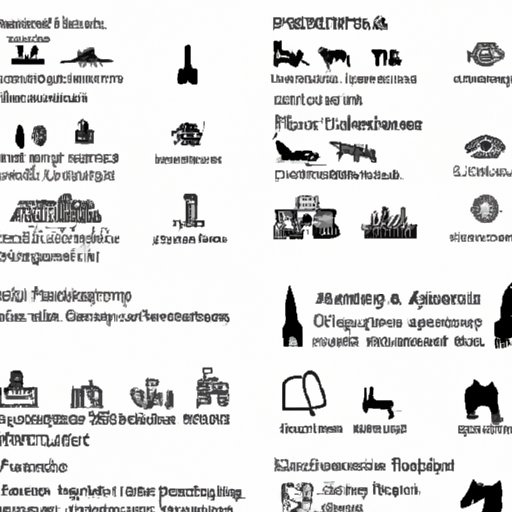Introduction
Roman culture is widely regarded as one of the most fascinating and significant civilizations in the history of mankind. Spanning over a thousand years, from the 8th century BC to the 5th century AD, ancient Rome played a pivotal role in the development of Western culture and society. In this article, we will delve into the world of Roman culture, exploring various aspects of daily life, sports, artifacts, inscriptions, cultural changes, and the enduring legacy of Ancient Rome. By the end of this article, you will have a comprehensive understanding of the fascinating world of Roman culture and its significance even in contemporary times.
Discovering Roman Culture: An Overview of Daily Life in Ancient Rome
The daily life of the ancient people of Rome involved a great deal of activities that shaped the culture and society of that time. Clothing, housing, food, religion, entertainment, social hierarchy, and more were some of the essential areas of daily life that defined the Roman culture. The Roman Empire was rich in diversity, and its culture comprised various regional and ethnic customs. The food was simple, and the Romans were largely vegetarian, but meat was also consumed in small quantities. The houses were modest and single-story, and the religion was polytheistic.
Uncovering the Secrets of Ancient Rome: Exploring the Archaeological Evidence
Archaeological remains play a significant role in helping us understand ancient Roman culture. Artifacts, inscriptions, and ruins provide insight into how daily life evolved and flourished during those times. Notable archaeological finds include the Colosseum, the Roman forum, and the Pantheon. These structures serve as valuable evidence of the technological and cultural achievements of Ancient Rome, including its impressive feats in engineering, architecture, and religion.
From Republic to Empire: Tracing the Evolution of Roman Culture
Historians have identified key eras in the development of ancient Rome, each characterized by different customs, practices, and cultural attitudes. The transition from the early days of the Republic to the period of imperial rule and beyond was characterized by political and social transformations that impacted many aspects of daily life, from architecture to religion. The cultural transformations that happened in Ancient Rome shaped the evolution of Western civilization, and these continued to influence society today.
Beyond the Gladiators: A Look at Roman Sports and Leisure Activities
Sports and leisure activities have been at the heart of human society since ancient times, and the Roman culture was no exception. They engaged in various sports, such as chariot races, gladiator battles, swimming, wrestling, board games, theatre performances, and many more. These activities reflected the values and interests of the ancient people of Rome and have left significant impacts on contemporary culture, entertainment, and sports.
The Legacy of Roman Culture: How Ancient Rome Still Shapes the Modern World
Ancient Roman culture has a lasting impact on contemporary society, leaving an indelible mark in various areas such as architecture, law, languages, religion, philosophy, and more. Many contemporary cities bear the hallmark of ancient Roman architecture, including standalone constructions like aqueducts, roads, and highways. Besides, the Western legal system draws heavily from the legal systems of Ancient Rome. The Latin language and many cultural practices have carried over into the modern world, making it crucial to understand the nuances of Roman culture and civilization.
Conclusion
Ancient Roman culture is a fascinating and unique civilization that makes it possible for us to understand the past and the present better. From politics to daily life to leisure activities, Ancient Rome is a testament to the enduring legacy of the ancient world. Understanding Roman culture is crucial for students and scholars of history, archeology, and cultural studies. By exploring Roman culture, we understand not only a diverse and complex civilization, but we also learn about the origins and development of the Western world. Ancient Rome’s legacy is immense and will continue to inspire and teach viewers for generations to come.
(Note: Is this article not meeting your expectations? Do you have knowledge or insights to share? Unlock new opportunities and expand your reach by joining our authors team. Click Registration to join us and share your expertise with our readers.)
